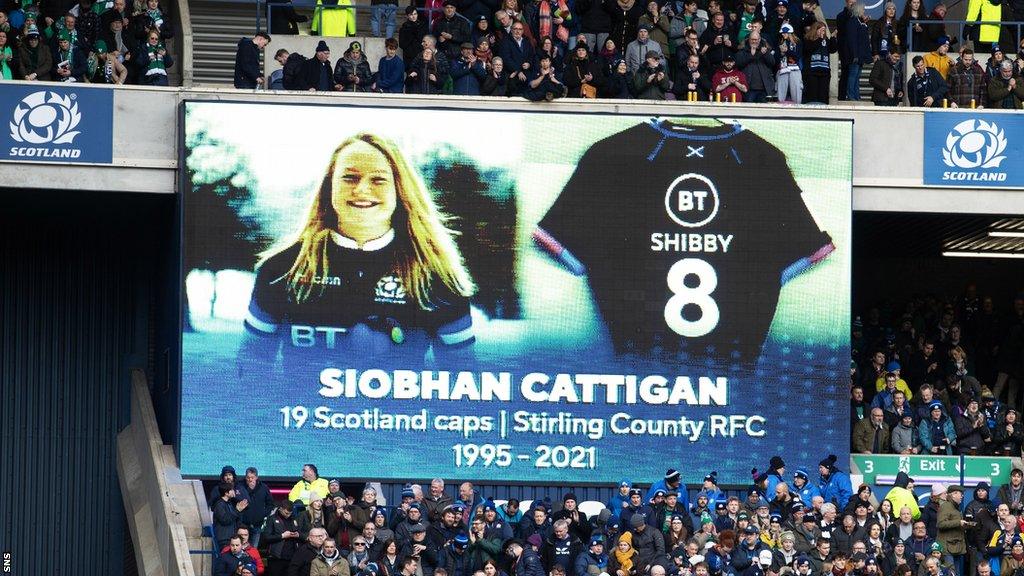Siobhan Cattigan: Scottish Rugby admits it 'let down' family of former player
- Published

Scottish Rugby say they should have handled the tribute to Siobhan Cattigan at Murrayfield prior to the Six Nations against Ireland in 2023 more sensitively
Scottish Rugby has apologised "wholeheartedly" and says it "let down" the family of former international Siobhan Cattigan.
Cattigan died in November 2021, with her family saying undetected rugby-related brain damage caused a "catastrophic decline" in the 26-year-old's health and led to her death.
The back row suffered two concussions on Scotland duty and her family have previously criticised the SRU for not holding an independent inquiry into the circumstances that led to her death.
They say their daughter, who won 19 caps between 2018 and 2021, was not given the required assistance for brain injuries and began legal action against Scottish Rugby and World Rugby,
Speaking at the Scottish Rugby annual meeting on Saturday, new chairman John McGuigan said it "should have managed this tragic situation better" and "take responsibility" for the handling of "certain elements surrounding Siobhan's funeral".
Some of Cattigan's team-mates were not made aware by Scottish Rugby of the family's wishes that they attend.
Furthermore, the governing body say sit should have contacted the family directly to offer its condolences and should have handled other events subsequently differently.
McGuigan said he had met Cattigan's parents and partner over recent months and that discussions are ongoing.
"Having listened to the family I want on behalf of Scottish Rugby to say sorry," he said.
"I wish to apologise wholeheartedly for any anguish we caused Siobhan during her time with Scottish Rugby and to her family and loved ones following her passing.
"Albeit Scottish Rugby did not intend to cause distress to the family through our actions, it's clear we should have managed this tragic situation better.
"We have listened and heeded the lessons and, in Siobhan's memory, commit to making changes to ensure we are a better organisation in the future."

Surviving the cut-throat world of commercial TV: The Australian drama The Newsreader is back on air...
How could the mental health crisis be eased? Roman Kemp champions support for struggling young people
